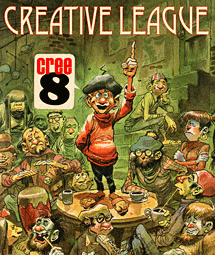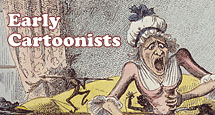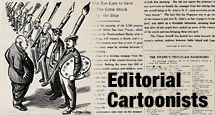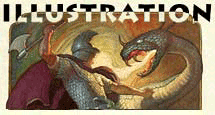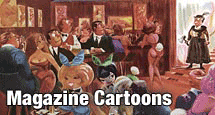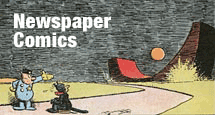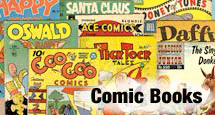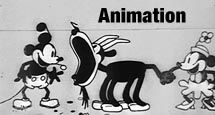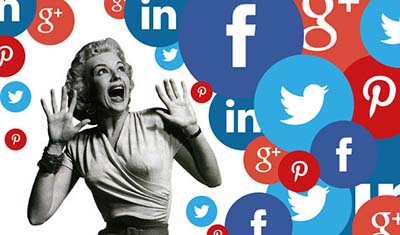
People love to complain about social media and how it’s dumbing down society and creating artificial relationships between people. We are all faced with timeline feeds full of inane memes, whining, political axe grinding and cut and paste platitudes. Social media is surely a force for evil out to destroy us!
But social media isn’t to blame. We now live in a society where mass media and television have become a part of all of our everyday lives, and it’s been that way for as long as we can remember. When radio was still new, Orson Welles suckered the world with “War of the Worlds”… a program that presented “fake news” about aliens from outer space attacking New Jersey. In the early days of television, commercials lied to us, touting “the brand of cigarettes that doctors recommend”. They tried to make us feel insecure by convincing us that without Pepsodent toothpaste our yellow teeth would destroy our sex appeal. Rumors about the illuminati, UFOs in Roswell, New Mexico and the Red Scare spread like wildfire in the 50s. Junk ideas filled movies, television, newspapers and magazines. Social media didn’t invent this stuff. We did.
We now realize that movies, recorded music, radio, and television are all just as capable of spreading lies as they are enlightening, educating and contributing positively to our culture. Great creators like Edward R. Murrow and The Beatles and Alfred Hitchcock proved that fact and justified the existence of the mediums. Social media has yet to really prove itself.

IS THERE SOME ASPECT OF SOCIAL MEDIA THAT ENCOURAGES MEDIOCRITY AND DECEPTION? HOW IS SOCIAL MEDIA DIFFERENT THAN “OLD MEDIA”?
The major difference between media of the past and modern internet media is interactivity. In the past, a creator would make something and present it to the world as a program or record album or image in a magazine or on a billboard. The audience was a passive spectator. That isn’t true of social media. We are now both creators AND spectators. That is a huge difference because it blurs the lines between creators and their audience.
Before the internet, creators needed the cooperation of a television network, record label or publisher to get their works seen. Today all we need is an internet connection. Why isn’t this spawning a renaissance in creativity and a blossoming of interaction between artists on the internet?
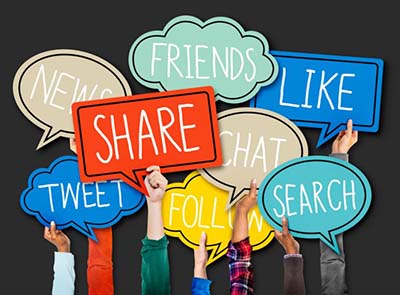
THE TRUTH IS WE’RE DOING IT WRONG.
We look to our social media accounts to passively entertain us the way “old media” did, and we abuse it to validate our own ideas. We don’t employ the power of the internet to entertain others and to open our minds to new ideas. We “share” other people’s memes as placeholders for our own point of view on the world. We blindly trust what we see that validates our own biases, and we block any opinion that doesn’t agree with our own. That isn’t the right way to create the sort of meaningful two way communication that social media demands.
One would think that creators would be smarter about how they use social media, knowing the power they have to communicate to thousands of people with a single click of a return key. But too often, creators use their channel of communication to complain about personal issues, repost other people’s ideas, and worst of all insult their audience. There’s absolutely nothing to be gained from creators getting into pointless arguments with people over things that aren’t even relevant to what they are trying to create. Every time you go off on an online enemy, your insults and griping are also being seen by the thousands of people you want to recruit to be a part of your audience. Can you imagine a stand up comic that walks out on stage and proceeds to get into a screaming match with a waiter or bartender before they even start their act? They would lose their audience in a flash! It’s no different on social media.
Another big mistake creators make is to generate large quantities of sales pitch rather than large quantities of content. They spend more time and effort spamming commercials for their Kickstarter campaign than they do actually producing and sharing their project. In the internet age, entertainment is all about two way communication. Cut and paste ads don’t cut it. You have to convince people to support you, you can’t just tell them to support you and expect them to do as you say. There are a million Kickstarters and GoFundMe projects out there. The ones that get supported are the ones that people already know. Introducing yourself to your audience with a Kickstarter is putting the cart before the horse.
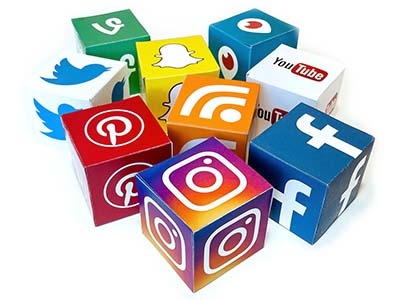
SO WHAT IS THE SOLUTION TO USING SOCIAL MEDIA TO ITS FULL POTENTIAL?
First of all, do what you are here to do… create content. You have a free distribution network. No need to enlist TV executives or publishers to get your work to an audience… you can cut out the middle man. Create bite sized content on a regular basis and give it away for free. Yes, free. To build an audience that will support you, you need to give them entertainment that they enjoy and want more of. Once you have a few thousand followers, you can start thinking about how you can convert them into customers. The general rule of thumb is that for every thousand followers who click “like”, ten of them will subscribe to your channel or feed, and one of them will become a customer who actually buys something from you. That means that you need a big pool of eyeballs before you can start asking people to pull out their credit card. Create the kind of entertainment you want to create and break it up into daily or weekly bits and share it for free. If you build it, they will come.
Secondly, present yourself as a real human being, but realize that your audience isn’t there just to serve as your cheerleading squad. Share things about your personality and life. That is how they connect to you as a person and learn to like you. But don’t demand that they validate everything you say or do. Allow other people to be different. That doesn’t mean that you should create a phony online persona. Obviously, you have to be yourself, but it isn’t a good idea to go out of your way to alienate the audience with your beliefs and opinions. Griping and complaining is the best way to alienate people. Instead, try focusing on the good aspects of your life. Share what you do. Don’t just post a photo of your dinner, post a recipe and instructions on how you made it so other people can try it too. If you post a photo of an event or vacation, talk about what you saw and did. Engage your audience and encourage them to participate. Even the small things in daily life can be interesting to people and a positive attitude is infectious.
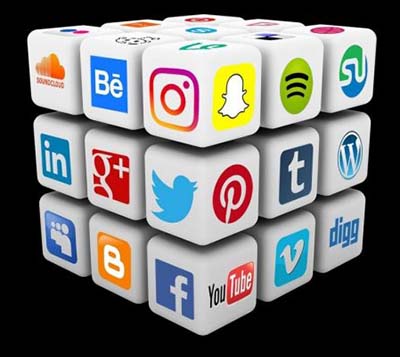
Thirdly, it’s vital to understand that the world isn’t all about you. Your social media feed should reflect that. People who only talk about themselves run the risk of getting tuned out. Share things that other people are doing that you think are cool. Post information about art or music that inspires you and articulate why you like it. Talk about books and music and movies and people that are important to you. That will increase the audience for your own work tenfold, because people will understand where you’re coming from and identify with it.
Most importantly, strive be a part of the online community. You are one branch of a larger tree. Try to be a strong and important branch, but take feedback and criticism graciously. On Facebook, I often see people announcing, “You aren’t allowed to post on MY timeline.” But your timeline is their feed! Other people throw down the gauntlet saying. “If you disagree with me, don’t comment on my posts.” Or worse yet, “If you don’t believe what I believe, unfriend me now.” That is a great way to turn people away and isolate yourself. Obviously there are people in this world who are negative and impossible to deal with. If you spot someone like that, just block them without any comment. Social media is a garden and you are just one flower in it. You need to weed the flower bed occasionally to give the flowers room to grow. There’s nothing wrong with that. Just don’t make a big deal about it.
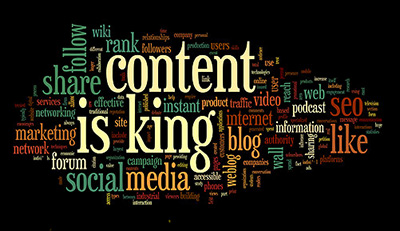
How well are you doing? Next time you log in to Facebook or Tumblr or Instagram, go to the feed of someone you follow, admire and support. Check out their posts for the past few weeks and think about how their posts represent them, their ideas and their work. Then go to your own timeline and categorize your posts. See how well you’re representing yourself. You might find a way to improve your presence.
When you post on social media, you are presenting yourself and your work to the world. Show your best face. Understand that you are just one part of a lot of people’s online lives. By “friending” you, they are allowing you into their consciousness. Don’t abuse that privilege. Most of all, understand that social media isn’t inherently good or bad. It is what we all make it. Do your part and create and share. Try your best to entertain and inspire. If you succeed, other people will see what you’re doing and do that themselves. That’s what makes for a valuable community and that’s what makes for a strong culture.





